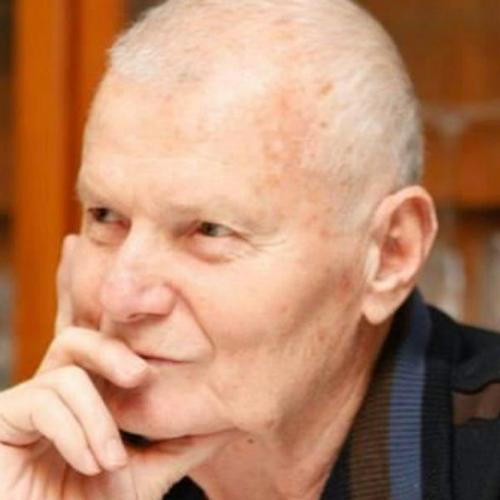
Rođen:18.01.1939. (Trebižat, Bosna i Hercegovina)
Preminuo:16.06.2023. (Toronto, Ontario, Kanada)
Dob: 84
It is with profound sadness that we announce the passing of our cherished father, husband and dida, Milan Dragicevic, who passed away peacefully in the dying light of day on Friday, June 16, 2023, at the age of 84, with his children, Ivana, Marin and Mirona and adoring wife, Matija by his side.
Milan was born to Iva and Anđelko Dragićević on January 18, 1939, in Trebizat, Čapljina, in the place he would cherish most in this world. He was the third child in a family of five, and his early life was indelibly marked with war and political tensions. Early on in his life he developed a political mind and a patriotic fortitude that he carried like an identifying badge all his life. He fled the border of then Jugoslavija at the age of 18 with three other friends to escape the persecution he felt as a Croatian in a Socialist country.
He could recall, until very late into his life, the address in Italy he would have fled to had he not been captured and subsequently imprisoned. He later studied to be a teacher and secured his first job as a math and physics teacher in Bosna. He was on a train traveling to his first day on the job when he heard buzz about an assassination, but no one could tell him who was assassinated. Alighting in Ostružac, near Bihac on that first day, he learned it was Kennedy. It was 1963.
In the coming years, he was pressured to join the Communist Party, but his political principles wouldn’t allow him to abandon his beliefs and deep desires for a democratic society. When he could no longer prosper without succumbing to those pressures, he left his life and traveled to Austria, and from there to Canada in 1967, where his cousin Libero Rajic would sponsor him and provide a safe and, albeit foreign, space to lean into his Croatian heritage.
He worked whatever job would pay, including the most laborious and dangerous, in the mines in Thompson, Manitoba and Sudbury, Ontario. He left the mines the day he witnessed workers dragging the body of man out of the mine. He continued to work in construction, perfecting his trade and learning many other skills that would later become useful in his life’s work, to build his own home with his own hands. His fingerprints are all over Ontario and many other provinces; he would live to build this country in a very literal way.
On New Year’s Eve, in 1971, he met Matija, known as Seka, at the cultural center “DOM” in Trebizat. After a very brief courtship, they married in February of 1972 in Hercegovina and then again in Canada in November of 1972. They welcomed their first child, Ivana, in 1974, and shortly after that, their son was born, Marin in 1975, followed by another daughter, Mirona in 1979. Milan moved his family from Toronto, to Calgary, and back to Hercegovina in the early 80’s and then back again to Toronto. They worked to send aid during the war in Jugoslavija and Milan’s desire to live in his home country, as a free citizen prompted him to book a ticket in 1991 to cast his vote in the first Croatian democratic election.
Milan also wrote prolifically. It was not uncommon to encounter dozens of slips of paper and cue cards, booklets filled with thoughts and ideas, phrases and philosophies around the home. Milan wrote poetry, essays, articles, random musings, all on the various political hot topics concerning Croatia’s status in the world and in history. He wrote and was published in Croatian newspapers and magazines, such as the Hrvatsko Slovo. “Poziv na Budenje” and “Bleiburg Polje i Putevi Križni” were two such titles, the former an essay and the latter a poem. He crafted his sentences and chose his words as meticulously as he worked in constructing the projects he was passionate about. He read, re-read and edited his works constantly, often fretting over the placement of a comma.
His final work was a short poem he entrusted his children to engrave on his tombstone in Hercegovina upon his passing. It sums up beautifully, the desire he had to return to the land he loved so dearly:
Od toliko viđenog svijeta
i prividnog sjaja njegova
na drugoj strani medalje iste
umire nada čovjekova.
Vraćam ti se zemljo Hercegova
sveta grudo mojih pradjedova
da u tebi gore svijeće moje
da u tebi čekam uskrsnuće svoje.
- Milan Dragićević
FOTO: Private
Nema fotografija
Kako bi svojim korisnicima pružili što bolje korisničko iskustvo ova stranica koristi kolačiće (engl. cookies). Više o kolačićima saznajte ovdje
Nema upisa